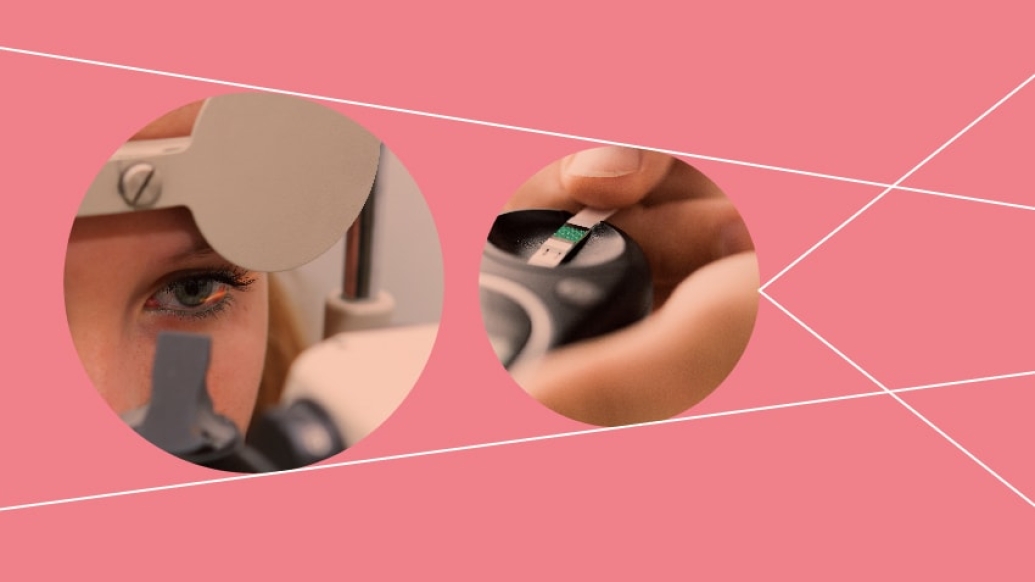A disease that steals a person’s eyesight is one of the many potential complications of diabetes. Learn why eye care is crucial.
7:00 AM
Author |

Left unchecked, diabetes can affect almost every part of the body — from skin and bone to the heart, liver and nerves.
A common and vulnerable target: the eyes.
MORE FROM MICHIGAN: Sign up for our weekly newsletter
About 30 to 40 percent of patients with diabetes in the United States experience diabetic retinopathy, which occurs when high blood sugar damages the tiny blood vessels of the retina.
The severity is tied to the duration and management of a patient's diabetes. Over time, advanced cases can lead to poor vision or even blindness.
That's why preventive self-care and regular eye exams are important, says Thomas Gardner, M.D., a professor of ophthalmology at the University of Michigan Kellogg Eye Center.
"Like most other diseases, success lies in early diagnosis and treatment," says Gardner. "The prognosis for retaining good vision for people who keep their diabetes well controlled is much, much better than it used to be."
Why diabetic retinopathy is dangerous
Many people aren't aware they have diabetic retinopathy until it has moved from early stages (nonproliferative retinopathy) to a point when leaking blood vessels break open and cause scar tissue that can pull on the retina (proliferative retinopathy). A delayed or lack of treatment "can make it very difficult to maintain vision," Gardner says.
Diabetic retinopathy symptoms
The condition is often asymptomatic, especially in early cases. But as it progresses, effects are pronounced — including a lessened (or lost) ability to read or drive. Gardner says patients also may start "seeing blood floating around in their eyes" in the form of tiny black or red dots.
SEE ALSO: 5 Questions with a Diabetes Physician Who Has Type 1
How diabetic retinopathy is diagnosed
Patients should notify a doctor if symptoms arise, but dilation during a routine eye exam can offer clues: "Most commonly, we see small hemorrhages in the back of their eye," Gardner says. "We also can see if there is swelling of the retina or growth of abnormal blood vessels."
Who is at risk of diabetic retinopathy
People with type 1 and type 2 diabetes generally have the same likelihood of developing diabetic retinopathy. Blacks and Hispanics have a higher overall risk. Secondary factors, Gardner says, also heighten the chances: "foot infections, anemia or coexisting kidney disease."
How diabetic retinopathy is treated
Steroids and medications known as anti-vascular endothelial growth factor (anti-VEGF) can help. "Steroids reduce inflammation, and the anti-VEGF drugs inhibit the action of a specific molecule inside the eye that promotes leaking blood vessels — and the formation of abnormal new ones," Gardner says. Some patients may be advised to receive laser eye treatment.
Ways to prevent diabetic retinopathy
Habits that patients with diabetes use to maintain their health also keep diabetic retinopathy at bay: exercise, smoking and alcohol cessation, and a balanced diet, among other things. "The earlier you set a good foundation, the more likely you are to do well," Gardner says.

Explore a variety of health care news & stories by visiting the Health Lab home page for more articles.

Department of Communication at Michigan Medicine
Want top health & research news weekly? Sign up for Health Lab’s newsletters today!





